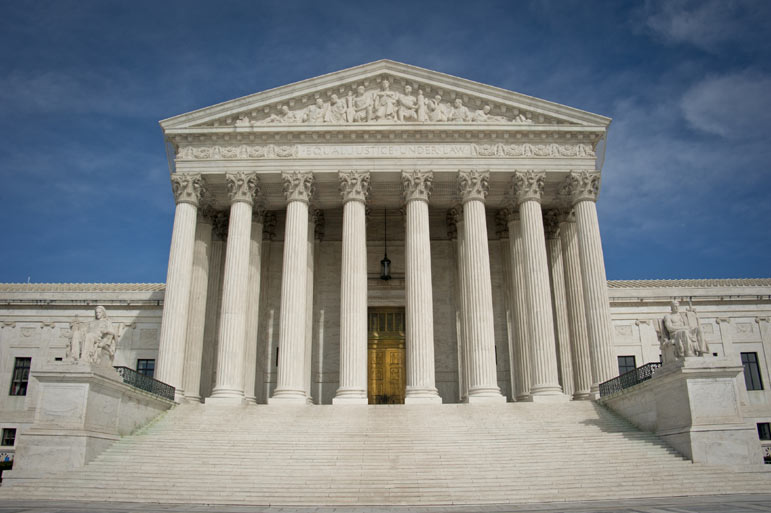
You can see it in the exit polls from the presidential election of 2016. Voters who chose their candidate on the basis of judicial appointments broke heavily for Donald Trump over Hillary Clinton.
Or you can review the campaign rhetoric that year. Trump regularly said that appointing a conservative replacement for Justice Antonin Scalia, who had just died, was a top issue in the campaign. At the Democratic convention, by contrast, Clinton drove liberal legal activists to despair by not even mentioning that President Barack Obama had nominated a replacement, Judge Merrick Garland, and that Republicans had refused to consider his nomination.
The 2020 campaign started out replicating that difference in emphasis. Trump released list after list of potential Supreme Court nominees, while Joe Biden has rebuffed Trump's challenge to do the same.
One theory we will probably hear to explain this pattern is that conservatives have been losing political support in the population as a whole, and therefore seek to use the courts to entrench their preferred policies. But conservatives have cared about the courts more than liberals in favorable political seasons and unfavorable ones. I suspect the real explanation lies in three related facts.
First, the politics of the judiciary is largely the politics of abortion - and the issue has consistently been a higher priority for opponents of it than for supporters.
Second, Republicans have repeatedly been disappointed by Republican-appointed justices in a way Democrats haven't. Republican appointees have made up a majority of the Supreme Court continuously since 1970 (with a brief exception for an evenly divided eight-justice court in 2016-17). But Republican appointees have frequently voted with liberals on high-profile issues such as abortion, affirmative action and same-sex marriage. Some of the Republican appointees have even made a point of retiring when a Democratic president could pick their replacement. By contrast, Democratic appointees rarely stray. The last Democratic appointee to disagree with Roe v. Wade, which established a constitutional right to abortion in 1973, joined the Supreme Court in 1962.
Third, controversies at the Supreme Court have more frequently involved decisions to impose liberal policies and forbid conservative ones than vice-versa. Conservatives haven't been suing the state of California to get it to end abortion. Liberals have been suing Louisiana to make them allow it. In the years before 2015, when the Supreme Court said all governments had to recognize same-sex marriages, nobody ever tried to get the federal courts to stop any state from recognizing them.
There are, of course, exceptions. Conservatives have sought to get courts to strike down liberal policies on guns, campaign finance and affirmative action, among other things. The difference - leaving aside the vital question of who's right on the legal merits of the individual policies - is that conservatives have not been very successful in getting courts to end policies in which millions of liberal voters are invested. Not many voters care about campaign-finance regulations. The courts have not banned race-conscious college admissions policies.
Getting the Supreme Court to rule that the Second Amendment protects an individual right to own guns was one of conservatives' biggest judicial victories. But even it can be exaggerated. So far the court has allowed most restrictions on guns to stand and struck down only full gun bans. The Supreme Court is not the main reason liberals have failed to pass gun restrictions, whereas it is the main obstacle to laws against abortion or laws allowing organized school prayer.
Conservative voters have thus repeatedly had the experience of winning hard-fought political contests in referendums and legislatures and then seeing the courts snatch away their policy gains. Liberal voters by and large haven't. Grievance is a powerful motivating force in politics. Even as Republican presidents have appointed justice after justice, the Supreme Court has created more of it for the right than for the left.
It doesn't have to keep doing that forever. Maybe the Supreme Court will move in the future to strike down the Affordable Care Act, or other elements of the welfare state, and liberals will start to view judicial appointments with the same urgency that conservatives do. If that happens, though, one reason will be that conservatives, after drawing the short straw for 50 years of judicial action, finally had enough.
(COMMENT, BELOW)
Ramesh Ponnuru has covered national politics and public policy for 18 years. He is an author and Bloomberg View columnist.


 Contact The Editor
Contact The Editor
 Articles By This Author
Articles By This Author